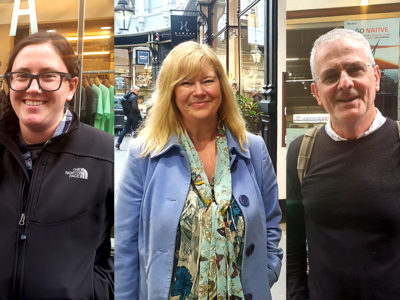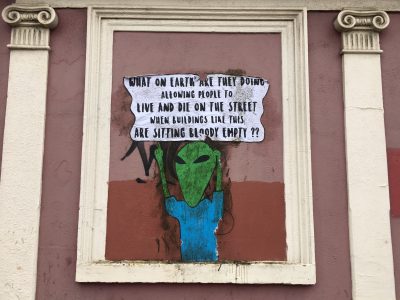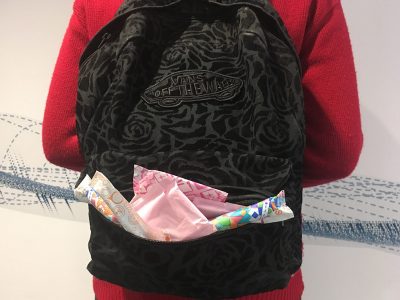Science School
Q & A with Julie
What attracted you to a career in science?
I liked the problem solving focus of it and the fact that you could find out things that nobody ever knew.
Why have you chosen to focus on the brain?
It’s this complicated organ which seemed to make us human and do a lot of fascinating things. It stores memories, processes information, gives us a personality and makes us feel emotion.
Why are the Recapturing Research Talent fellowships so important?
As a country we can’t afford to ignore and lose those skills that are being developed. It’s not rational, it’s not healthy, it’s not good for the economy and it’s certainly not good for women.
Science in Practice
Anna Burt is a genetic research scientist at Cardiff University. She is a second year PhD student researching polygenic cell-based models of Alzheimer’s Disease and is an integral part of Professor Julie Williams’ research team.
Watch Anna at work in this video…
A stylish woman donning a black pencil skirt and a pixie haircut is chatting about Doctor Who, rugby and the Pembrokeshire coast. You could be forgiven for thinking that these were the musings of an ordinary woman. They are not. Although Professor Julie Williams CBE, is down-to earth and approachable, she is anything but ordinary.
Julie is a professor of neuropsychological genetics at Cardiff University. She is a world leader in Alzheimer’s research. She has received a CBE from the Queen.
Supporting women in science
Julie’s next mission however, is to use her role as chief scientific adviser for Wales to open up the scientific frontier to more women across Wales.
The 58-year-old scientist states that one of the ways in which she aims to achieve this is through the 12 Recapturing Research Talent fellowships which are to be introduced by the Welsh Government this week.
These three-year fellowships, which can be both full-time and part-time, have been created in order to help scientists re-engage with research after a hiatus from the field. These initiatives will largely help women who have left scientific research due to family commitments.
Julie explains that these fellowships hope to help scientists compete on an “even playing field.”
Her own personal experiences have fuelled her passion for this cause. She studied psychology at university before securing a PhD research post. However, she struggled to secure research work for seven years after putting her career on hold to start a family.
“It almost killed my career” she muses.
Encouraging schoolgirls
Changing schoolgirls’ perceptions of themselves and of science is also a cause which Julie has championed.
“Girls do tend to underestimate what they can achieve”, Julie explains.
As a result, specialist physics labs are being commissioned into schools across Wales in order for young girls to consider the possibilities of science before sitting their GCSEs.
Inspirations and motivations
Julie herself showed a keen interest and aptitude for science from an early age.
As a young girl, she was inspired by Jacob Bronowski, the historian who presented the BBC documentary series, Ascent of Man.
“He showed me that curiosity is amazingly exciting and is something you can have as a core part of your life in the future”, she explains.
“He showed me that curiosity is amazingly exciting and is something you can have as a core part of your life in the future”
Having grown up in Cefn Coed, Merthyr Tydfil in a community where gender roles were very traditional, Julie went on to break the mould.
“I was the only girl in the physics class when I sat my GCSEs”, she recalls.
Julie’s decision to pursue a scientific line of work was also inspired by her biology school teacher, Jan Williams who instilled in her that if you want to achieve something, you just go and do it.
Past experiences have helped Julie shape the future of the scientific sector globally and in Wales. She is ensuring that women across Wales are given the same opportunities as men at every level. She is science’s superwoman.
When she is not working however, Julie jokes that her favourite hobby is “lying down”, with boat trips in Saundersfoot coming a close second.
Next on her agenda is reading To Kill a Mockingbird.
Needless to say that Professor Julie Williams is the Atticus Finch of science in Wales.
Science School
Q & A with Julie
What attracted you to a career in science?
I liked the problem solving focus of it and the fact that you could find out things that nobody ever knew.
Why have you chosen to focus on the brain?
It’s this complicated organ which seemed to make us human and do a lot of fascinating things. It stores memories, processes information, gives us a personality and makes us feel emotion.
Why are the Recapturing Research Talent fellowships so important?
As a country we can’t afford to ignore and lose those skills that are being developed. It’s not rational, it’s not healthy, it’s not good for the economy and it’s certainly not good for women.
Science in Practice
Anna Burt is a genetic research scientist at Cardiff University. She is a second year PhD student researching polygenic cell-based models of Alzheimer’s Disease and is an integral part of Professor Julie Williams’ research team.
Watch Anna at work in this video…







